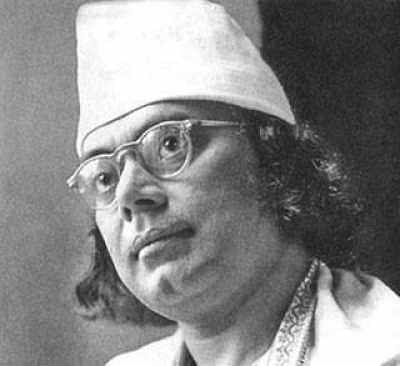Nazrul Jayanti, also known as Kazi Nazrul Islam’s birth anniversary, is a day of celebration and remembrance dedicated to one of the most revered poets in Bengali literature, Kazi Nazrul Islam. Born on May 25, 1899, in Bengal, Nazrul Islam’s contributions to poetry, music, and activism have left an indelible mark on the cultural landscape of not only Bangladesh and India but also on the world stage. As we commemorate Nazrul Jayanti, it’s an opportunity to reflect on his life, works, and enduring legacy.
Early Life and Education:
Kazi Nazrul Islam was born in the village of Churulia in the Burdwan district of British India (now in West Bengal, India). From an early age, he displayed a penchant for literature and music, and despite facing financial challenges, he pursued his education with fervor. His exposure to the socio-political issues of his time deeply influenced his worldview, which later reflected in his poetry and writings.
Revolutionary Poetry:
Nazrul Islam’s poetry is characterized by its revolutionary fervor, advocating for social justice, equality, and freedom. He fearlessly criticized oppression, colonialism, and societal injustices, inspiring generations with his powerful verses. His poem “Bidrohi” (The Rebel) became an anthem for the oppressed, embodying the spirit of resistance against tyranny.
Literary Contributions:
Apart from poetry, Nazrul Islam was a prolific writer, composing essays, novels, short stories, and plays. His literary works addressed a wide range of themes, including love, spirituality, patriotism, and humanism. His magnum opus, “Bisher Banshi” (The Poison Flute), is a testament to his mastery of language and the ability to evoke profound emotions through his words.
Musical Legacy:
Nazrul Islam’s musical genius is as legendary as his poetry. He composed over 4,000 songs, known as Nazrul Sangeet, which blend elements of classical, folk, and modern music. His compositions celebrate the human spirit, love, and the beauty of nature, earning him the title of “Bidrohi Kobi Sangeetik.”
Cultural Icon:
Throughout his life, Kazi Nazrul Islam remained a beacon of hope and inspiration for millions. Despite facing persecution for his outspoken views, he remained steadfast in his commitment to social justice and humanity. His contributions transcended geographical boundaries, earning him accolades and admiration worldwide.
Legacy and Impact:
Even after his passing in 1976, Nazrul Islam’s legacy continues to resonate with people of all ages and backgrounds. His words continue to inspire activism, cultural expression, and the pursuit of truth and justice. Nazrul Jayanti serves as a reminder of his enduring influence and the timeless relevance of his message.
As we commemorate Nazrul Jayanti, let us not only celebrate the life and works of Kazi Nazrul Islam but also reaffirm our commitment to the values he espoused – freedom, equality, and compassion. May his poetry continue to kindle the flames of resistance and inspire generations to strive for a more just and harmonious world.

